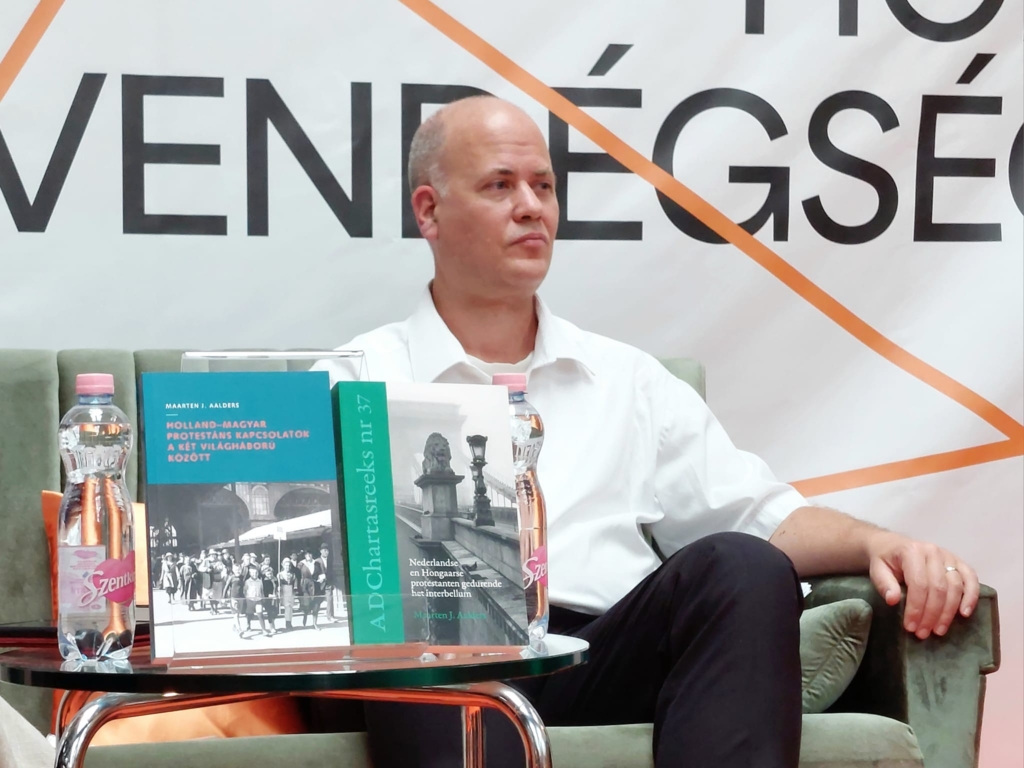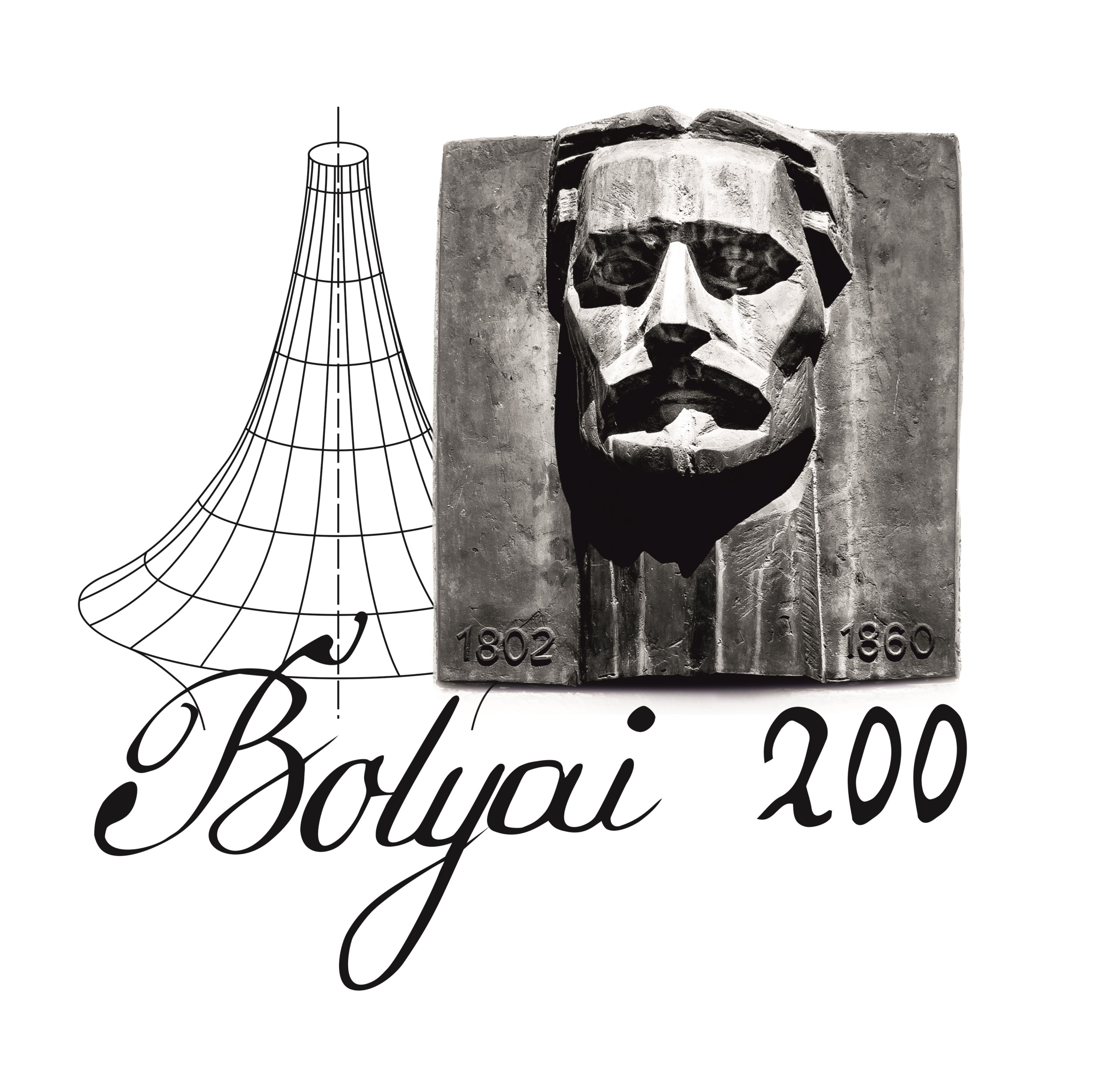Téglásy Sándor

Sándor Téglásy, translator:
Dutch and Hungarian Protestants relations in the interwar period
Book presentation and translators’ reflections on the Hungarian translation of Maarten J. Aalders’ book
The book was written based on more than a thousand letters written by theology professor Jenő Sebestyén to a multitude of church leaders and politicians in the Netherlands – the originals reside in the Ráday Archive, Budapest. These are the backbone of most chapters – Sebestyén is the main protagonist in most of them – or plays at least some role in them.
On the Dutch side, the main protagonists are the children of Abraham Kuyper, Dutch church- and university founder, theologian, and prime minister – but certainly not only them. These Dutch personalities were in charge of several projects to provide support to the needy of the Hungarian church and society in general and to the Reformed Church in Hungary specifically.
Apart from Sebestyén, numerous other Hungarians studied in Holland from 1623 onward. And when, after the armistice at the end of World War I, it became clear that Hungary was in a bad situation and its survival was threatened from all sides, the Protestant churches in Hungary decided to send a delegation to the Netherlands to urge their kindred spirits to sound the alarm bells. One of the people who showed particular merit at that time was J. Cramer, to whom the theological school in Cluj awarded an honorary professorship in 1921. The efforts were in vain, and on June 4, 1920, the fate of Hungary was sealed.
Meanwhile, a large relief effort had begun, from Protestants and Catholics both. Between 1920 and 1930, 28,000 children were lovingly admitted to the Netherlands for some time to recover from all the hardships of the years of war and revolution. Children’s soup kitchens were also started, and children’s homes were established.
In addition to this charitable work, contacts in the church field grew. The Neo-Calvinists in particular felt called to help Sebestyén in his efforts to reform the Church of Hungary in the Neo-Calvinist spirit. At the so-called January conferences in Budapest, Dutch professors were guests more than once, students from Amsterdam and Kampen came to Gödöllő in the summer of 1924 to get acquainted with their Hungarian colleagues.
The translator had more responsibility and tasks than in a usual translation project, as the author does not speak Hungarian, but used many Hungarian sources. While writing the original (Dutch) version of the book, several expert Hungarian professors of Dutch Language and Literature as well as church historians helped the author with sources from Hungarian secondary literature, advice and translations. At the same time, the translator’s own historical knowledge and research in Hungarian (and Dutch) databases and in libraries were also required to check original sources and provide feedback to the author regarding general or specific facts of Hungarian history discussed in the book. In addition, of course, there were Dutch expressions and notions that required creative solutions during translation.
The book is written from a Dutch perspective, and the authors intention is to send an invitation to his Hungarian colleagues to shed light on the story of this close relationship from their perspective, to continue research and to make corrections if necessary.
Roll-up poster exhibition
Thanks to Máté Millisits, a historian, art historian and enthusiastic urban preservationist, a collection of roll-up posters also comes to accompany this book presentation. It presents iconic moments of relations between the Dutch and Hungarian reformed churches in Hungarian, on 13 richly illustrated roll-up posters, from the Reformation until the outbreak of World War II.
The exhibition will be on display for a few weeks after the completion of Bolyai 200 at the New Millennial Reformed Center in Timisoara.
About the author
Maarten J. Aalders (1954) studied theology, church history at the Vrije Universiteit Amsterdam. He served as pastor in Woubrugge and Amstelveen. Since 2018 he has been working at the Research Institute for Neo-Calvinism at the Kampen Theological University. He is the author of several well-received books on contemporary church history.
About translator
Sándor Téglásy (Budapest, 1976) studied German and Dutch at Eötvös Loránd University and currently lives in Timişoara with his wife and son. After obtaining his master’s degree in 2001, worked as a translator and editor for the new German-Hungarian dictionary. Starting in 2002 he worked as an IT specialist, specializing in IT security, among others at Microsoft. In 2018 he returned to the field of translation, text production and proofreading, with working languages English, German, Dutch and Hungarian.
